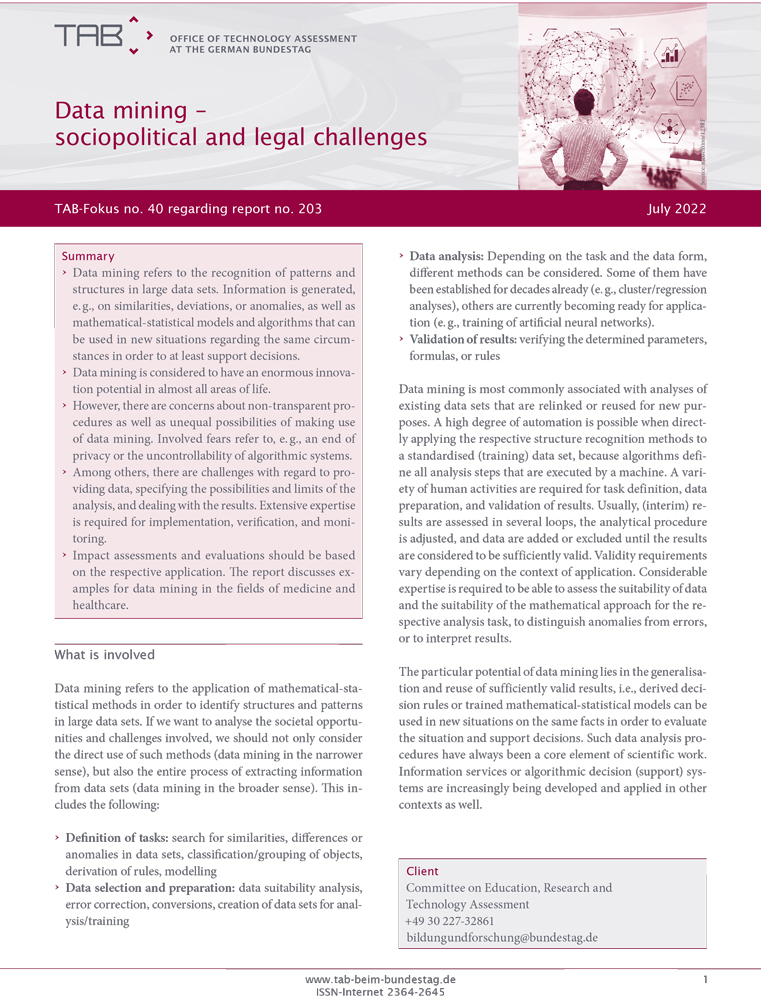Data mining – sociopolitical and legal challenges
Data mining is a term that plays on the evocative image of digging for veins of raw materials and finding nuggets in the growing data pools of today's data age. It has never been hyped like Big Data or artificial intelligence. Yet there is considerable overlap, especially when considering the societal challenges. TAB Report No. 203 looks at data mining from a technical and legal perspective and explains the associated societal challenges using numerous application examples, primarily from medicine and healthcare.
Data mining in the narrower sense refers to the increasingly automated analysis of large data sets in order to identify patterns, structures, trends or correlations. Societal challenges become particularly visible when data mining is viewed as a process, which also includes the tasks upstream of the analysis, the provision and preparation of data, as well as the downstream validation and use of the results. This is because, on the one hand, in data mining, data that were primarily created in one context are also used in other contexts to search for patterns. This raises questions about access to existing databases and about the possibilities and limits of further use. On the other hand, the particular potential of structure-analytic methods lies in the generalisation and reuse of sufficiently valid results. Depending on the task, not only information can be gained, but also decision rules can be derived, mathematical-statistical models can be adapted to the data, or algorithms can be trained to be used in new situations with the same facts and to at least support decisions. Such data-driven decision support systems are seen as having innovation potential in almost all areas of life. The opportunities and risks involved must be weighed up in each situation. The report illustrates this with a number of application examples.
The focus of the report is on data collected in the course of public tasks, the possibilities and limits of their further use, and how to deal with the results of data mining processes. It provides a comprehensive information base for policy discussion and the design of complex data analysis processes for the benefit of individuals and society.
A brief overview of the contents of the report chapters and application-related options for action can be found on the project page. TAB-Fokus issue no. 40 provides a compact summary of the report.
15.03.2023 (updated on May 3rd)
Download and further information
- TAB-Fokus no. 40
Data mining – sociopolitical and legal challenges (PDF) - TAB-Arbeitsbericht Nr. 203 (only in German)
Data-Mining – gesellschaftspolitische und rechtliche Herausforderungen. Endbericht zum TA-Projekt (PDF)
DOI: 10.5445/IR/1000156297 - Project page: Data mining – sociopolitical and legal challenges

